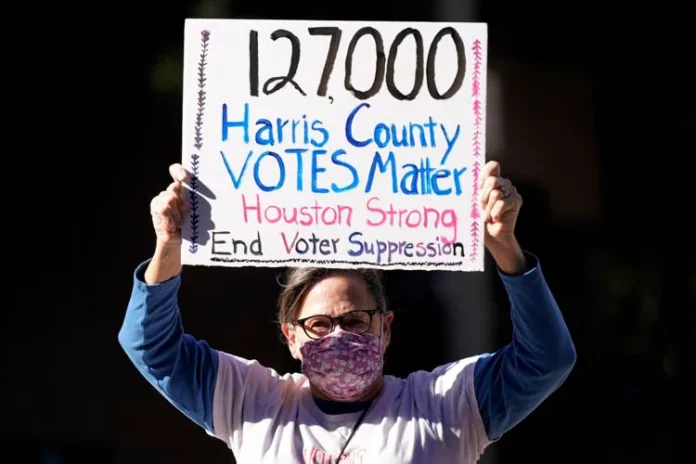
Action has been taken on administrative oversight, registration and records changes in legislative sessions thus far in 2023.
Some states remain in session; others are done. In an analysis by The Center Square staff, the most notable changes happened in Texas and Washington. At the same time, laws in two states at the epicenter of some hot-button claims in 2020 and 2022 – Pennsylvania and Arizona – haven’t changed.
One state’s most significant election reform came not from a session this year but from half a decade ago and a court ruling this spring. Implementing photo identification to vote gives North Carolina what voters requested in 2018.
The following is a breakdown by state of the most notables:
TEXAS: The House and Senate passed two key election reform bills this session. Gov. Greg Abbott is expected to sign them into law. The measures are meant to prevent election irregularities from occurring again that happened in Harris County over the last two election cycles.
The first measure gives the Texas Secretary of State oversight of election officials statewide.
The second eliminates the appointed elections administrator position that Harris County created, and returns the management of elections to an elected county clerk and tax assessor-collector.
After Harris County commissioners created the position and spent tens of millions of dollars overhauling the county’s election system, at least 10,000 ballots were not counted in the March 2022 primary election. The first administrator they hired was forced to resign. The new administrator presided over widely reported voting irregularities, including when paper ballots sitting in a warehouse weren’t delivered to mostly Republican precincts, electronic machines jammed, and voters were turned away from polling locations in the November 2022 election.
WASHINGTON: The Legislature introduced several bills regarding voting and election transparency.
One automatically registers citizens to vote when they get an enhanced driver’s license. The other exempts election system infrastructure from public record requests for 25 years and redirects all public record requests made to the county auditor concerning the state voter database to the Secretary of State’s Office. Both bills passed overwhelmingly in the Senate but received party-line votes in the House.
PENNSYLVANIA: Nearly four years after the General Assembly approved sweeping changes to the state’s election law – including the authorization of near-universal mail-in voting – many lawmakers believe it caused unintended consequences.
Democrats and Republicans alike want more reforms, but little common ground exists. The former supports same-day registration, voter intimidation penalties, and lengthier canvassing periods. The latter keeps voter ID, reorganizing voter rolls to remove outdated information, and more burdensome mail-in regulations – from signature matching to ballot box limits and protections.
The ideological divide between the parties remains at an all-time high after 2020 election fraud claims overwhelmed the nation. Bitterness and distrust linger on both sides of the aisle.
ARIZONA: The story in Phoenix this session was vetoes. Gov. Katie Hobbs, a Democrat in her first year and former secretary of state, vetoed more than a dozen election reform bills. Several more couldn’t convince all Republicans to support them, thus not facing a decision from Hobbs. Among them was one that would have required an election be scrapped and reconducted if as many as 1,000 voters in Maricopa County testified they waited in line for more than 90 minutes. Another banned ranked-choice voting. One bill Hobbs vetoed would have banned artificial intelligence in voting machines.
NORTH CAROLINA: Introduced but going no further were ranked choice voting, absentee mail-in processes, citizens-only voting, and a bill for an independent redistricting commission.
All are overshadowed. Republican lawmakers, and more than 55% of the 2018 midterm’s nearly 3.7 million voters, got a win from the state Supreme Court with a photo voter ID ruling in April. Justices also dismissed a redistricting case – there is still a federal case to be resolved – and put back in place a prohibition of felons from voting until their full sentence is completed, that meaning to include paying fines and time on probation.
SOUTH DAKOTA: The state has banned ranked-choice voting.
ALASKA: The midterms were the first ranked-choice voting in the Last Frontier State. There’s a bill alive that would end it.
NEW HAMPSHIRE: A House bill would propose using security measures in ballots, a chain of custody procedures, and tracing ballots routed across the state. Also included is a photo ID and proof of residency.
VERMONT: The secretary of state is asking for funding to upgrade voting equipment and other functions, including election security, campaign finance laws, and integrity.
Republished with the permission of The Center Square.













